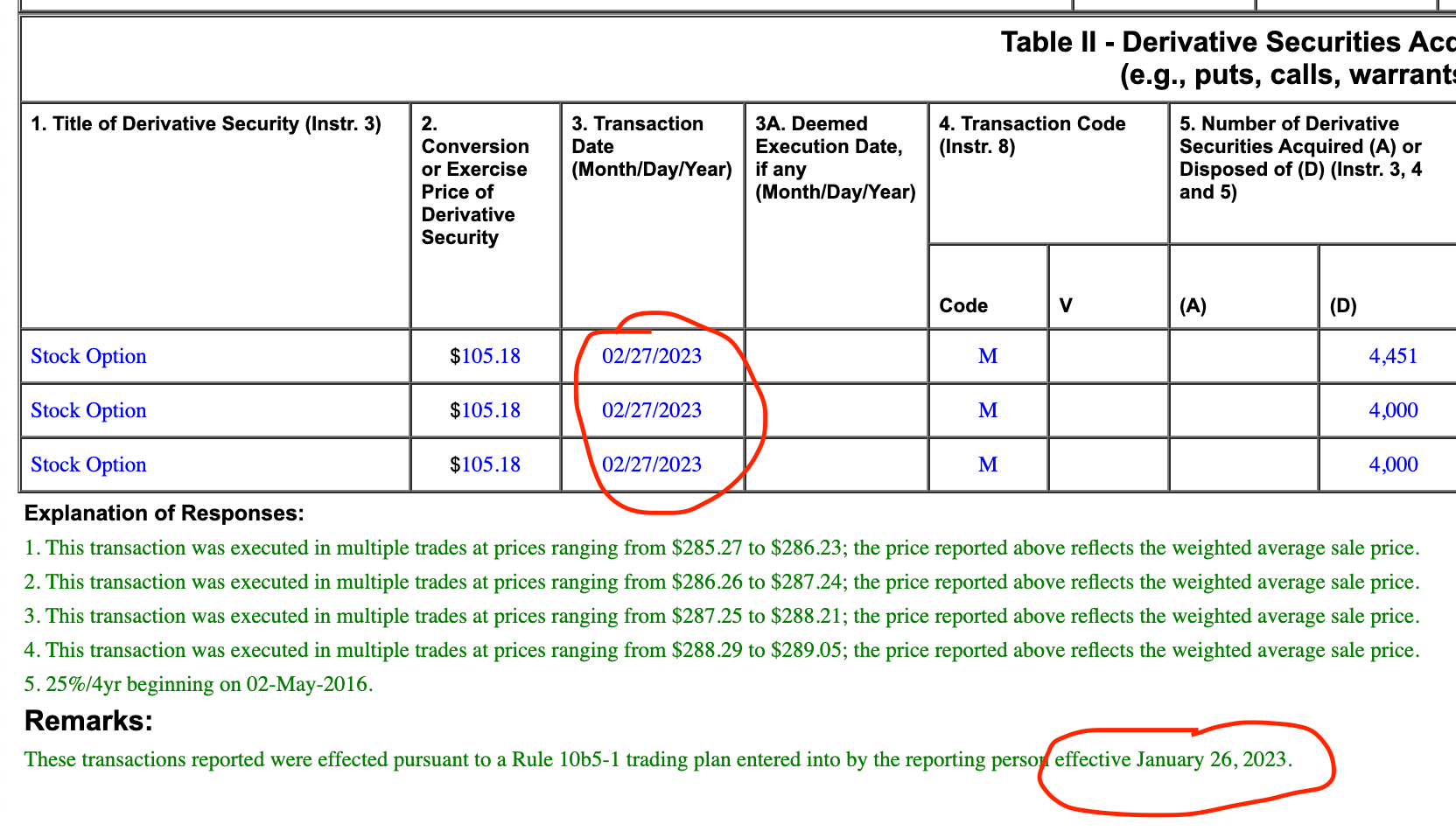Silicon Valley Bank execs' insider trading
Avoid insider trading allegations with this one weird trick.

Silicon Valley Bank went bust.
The CEO and CFO sold around $4M worth of stock two weeks prior.
$4M isn't that crazy a number, but that was 11% of the CEO's holdings, and 32% of the CFO's holdings.
Obviously, angry citizens of the internet crawled out of their caves to shun this insider trading.
But the angry citizens don't realise there's this thing called pre-scheduled stock sale plans, which executives often use to avoid insider trading allegations. And that's exactly what the execs did.
It works like this: An exec has to specify in advance how many stocks they want to sell, and at what price, and on what far-away future date. This means they won't have insider knowledge, because nobody can see the future. It's called a 10b5-1 plan.
... or that's what I thought.
I took a deeper look into the SEC filings and compiled this complex timeline:
- January 26 - CFO and CEO enter into 10b5-1 trading plans.
- February 27 - they dump a bunch of shares. (CEO sauce, CFO sauce)
- March 10 - the bank is pronounced dead.
If that ain't insider trading, I don't know what is.
So... pre-scheduled isn't really that pre-scheduled?
Uh, yeah, so here's the thing. The law Investopedia says:
Rule 10b5-1 permits major holders to sell a predetermined number of shares at a predetermined time.
A predetermined time.
PRE. DETERMINED. TIME.
One would THINK that means it has to be at some point in the not-so-imminent future, no?
Yeah, nah.
As I have discovered, there were no laws around how far in advance that had to be. Legally, theoretically, you could enter a 10b5-1 plan for the next day if you really wanted to. It would be called ✨ predetermined ✨.
In practice, many issuers imposed their own 30-day minimum waiting periods.
And guess how long it was between Silicon Valley Banks CEO and CFO entering their 10b5-1 trading plans and selling their stock? 30 days.
So I guess their issuer had that 30-day period imposed.
Wait really? Surely the law is not that rubbish?
Okay, I lied. Kind of.
The good news is there is a mandatory waiting period between setting up a trading plan and selling stocks.
That is to say, there's a mandatory waiting period now. It came into effect on Feb 27, 2023, which happened to be after the Silicon Valley Bank execs sold their shares.
There's a period of 90 days imposed by law now. More nuance here.
Will they get done for insider trading?
I don't know.
Should they? I don't know.
They must've known the bank was in pretty deep trouble. But it's not insider trading if the public knows that too, and maybe the public knew that too.
What I care about is getting more knowledge about how players in the market act. More knowledge about how the world works == more trading knowledge.
Maybe a bank CFO selling one third of their stock will be a bigger tip off next time, and I'll be buying some Puts, or at least sitting on the sidelines with 🍿.
